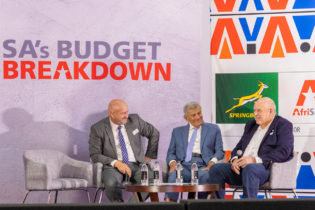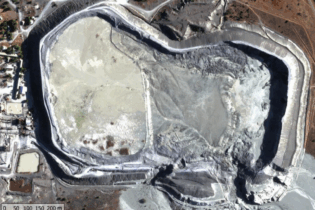The South African National Roads Agency (Sanral) may have to buy back bonds, the Auditor-General is warning of disclaimers and qualified audits, there are questions around whether Sanral would remain an going concern and the potential for increased future burdens on the taxpayer.
These are just some of the possible impacts of the interdict that was granted to stop e-tolling on Gauteng’s road, as put forth by Finance Minister Pravin Gordhan and Sanral CEO Nazir Alli in their founding affidavits that form part of the notice to appeal the interdict decision by Judge Bill Prinsloo. Alli has recently handed in his resignation, but is still in his post until June. Sanral estimates that the average monthly expenditure on the Gauteng Freeway Improvement Project (GFIP), including operational and capital cost payments and interest on debt, will amount to R601 million in 2012 and 2013. In the absence of revenue as a result of the High Court order to interdict e-tolling on the province’s roads, this will rapidly further erode the R5.75bn special appropriation that was made to Sanral by Treasury in the 2012 Budget. This is according to Gordhan in his founding affidavit that accompanies the notice of appeal by Treasury, Sanral, the Minister and Department of Transport, the MEC of Roads and Transport in Gauteng, the Minister and Department of Water and Environmental Affairs and the Director-General in the e-tolling case. The documents, which are now available on the Opposition to Urban Tolling Alliance’s (OUTA) website, highlight the case that government and Sanral hopes to put directly to the Constitutional Court to set aside the ruling by Judge Bill Prinsloo handed down at the end of April. In his affidavit Gordhan says that to the extent that expenditure, including interest, exceeds the income of the GFIP, there will be “a further deficit each month that requires more debt to be raised, thus burdening future road users or taxpayers.” Gordhan also expands on the impact of the two-notch downgrade that was announced by Moody’s Investor Services after the interdict was granted. He said that it may be possible that Sanral will have to buy back some of the bonds that were issued in the market. He also says that Sanral now has to redeploy the R5.75bn given by government, which was intended to reduce Sanral’s debt, in order to defray operational expenditure, interest payments and other toll-related expenditure which will result in the long run, in the need to recover greater amounts of toll from the public to service Sanral’s debt. If Sanral defaults on the debt incurred, approximately R21bn (half of Sanral’s total debt) would be immediately due and payable. In terms of clause 13.1.6 of the programme under which Sanral issued its bonds, the “discontinuation of a significant part of the toll business” is an event of default, Gordhan says in his affidavit. “The prospect of an event of default has led investors and credit analysts to advise both Sanral and National Treasury that they are not in a position to purchase Sanral bonds and that in the absence of a resolution to the matter, investors will be obliged to sell their holdings of Sanral securities.This would lead to an expectation that Government would settle the total debt of Sanral amounting to R37.5bn,” Gordhan says.
According to his affidavit, in the week following the judgment, foreign investors such as the European Investment Bank made enquiries as to Sanral’s status and future upon which government had to step in to confirm its support for Sanral to allay fears. Also, the Auditor-General has indicated to Sanral that its financial statements for the year-end March 31 2012 will need to reflect whether Sanral is still a going concern for the next 12 months, in order to avoid a qualified audit report. According to Gordhan, the Auditor-General indicated that he may have to issue a disclaimer by July 31 2012 which would “in all likelihood” result in a further downgrade by the ratings agencies. Gordhan says that if the guarantee be called in, where government guarantees R19bn of the R21bn incurred for the first phase of the GFIP, it could have negative consequences for the government’s ability to raise funds from capital markets. In his supporting affidavit, Sanral CEO Nazir Alli says that Sanral will incur R270m on a monthly basis in respect of interest and repayment of the GFIP capital. He says there are also further costs, including approximately R28m per month payable on other contractual commitments associated with the GFIP. This last amount includes monies payable to the operator ETC. “Moreover, for as long as the interdict is in place, Sanral will not recover the costs of ongoing maintenance to the GFIP. These costs will also have to be funded by Sanral without any income,” Alli says. “I point out too, that for so long as the interdict remains in place and uncertainty persists around e-tolling and Sanral’s future generally, it is practically impossible for Sanral to borrow any further money in the market,” he says. “This means that when current reserves are exhausted, Sanral will not be able to operate as a going concern.” Alli says that perhaps even more troubling for South Africa is that all other capital infrastructure projects, including Greenfield developments and upgrades, improvement and maintenance projects on the existing network must be postponed indefinitely. “Sanral cannot commit to new projects unless it is in a position to secure funding. This means that future growth of the road network and planning and projects must be delayed.” Source: citizenonline





